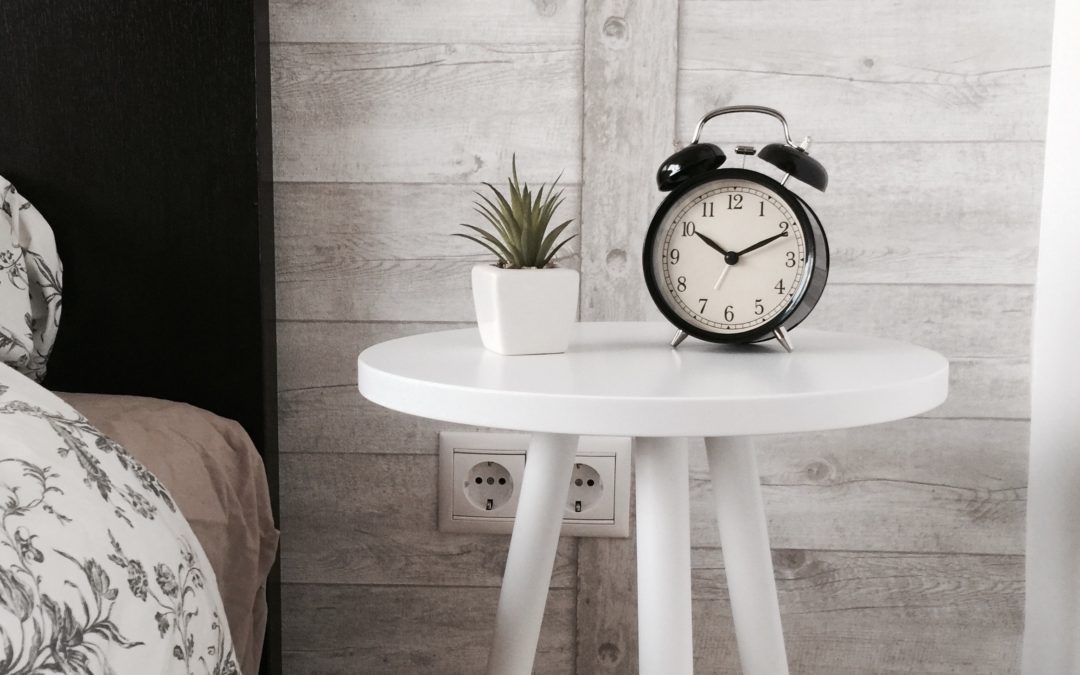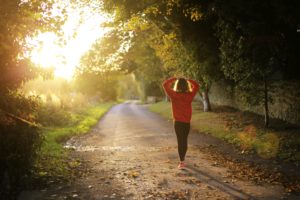You may have noticed autumn creeping in and the days getting gradually shorter as the evenings become darker. This means making the most of your day all the more important. In a months time, on 27th October, we gain a ‘magic hour’ in our day, but while some of us might rejoice over the ‘extra’ hour in bed, the savvy and smart amongst us will put that annually gifted hour to good use by adding a blissful 60 minutes of ‘me-time’ to our mornings, without the hassle of having to wake up any earlier…
This is your chance
October is a magical time of year. One morning you wake up at 7am and it’s 7am, the next you wake up at 7am, and it’s actually 6am. You’ve conjured an hour out of nowhere before your day even begins to do whatever you want with – yoga, gym, reading, walking the dog, studying for that qualification you’ve never had time for, snuggling up with a blanket and watching Netflix if you really want – the point is, that blissful hour is all yours and you can do whatever you like with it. As the clocks go back, we have one opportunity per year to combine the annual reversing of time and the wonders of our circadian rhythm, to create extra time in our day with absolutely no-effort. So, if you you’re always thinking “I never have time”, this is your chance to grab an extra 60 minutes with both hands, and it’s a perfect chance to start new self-development or wellness habits like a morning workout, meditation practice, a study routine, or journaling.
How does it work?

So, when the clocks go back on the 27th October, and I go to bed at 11pm, my natural circadian rhythm will wake me at 7am as usual, according to my body clock. Yet in fact, the chronological time has been set back an hour, making it actually 6am, et voila, I have woken an hour earlier, without getting any less sleep, or feeling any more tired. As long as I set my bedtime back an hour or so from here on out, I’ll be able to maintain my gained hour without the trouble of having to reset my body clock, which can be difficult and takes time, just ask anyone who has ever suffered from jet lag how arduous trying to shift a sleep pattern overnight is!
 Watch out for the pitfalls
Watch out for the pitfalls
And yet, while the ‘magic hour’ concept makes sense, rarely do gifts such as these come without obstacles; we might have gained an hour, but there are of course some obstructions that could get in our way of creating and keeping this blissful hour of ‘me time’ in our morning. Bad sleep habits such as looking at screens in bed (the light from which can disturb melatonin production), and drinking caffeine before bed, can make it more difficult to fall asleep, which will have a knock on effect on your waking time the next morning, eating into your new hour, and messing up your circadian rhythm. But the sure-fire way to mess with your sleep quality and interrupt your circadian rhythm, is to drink alcohol. Although we often (incorrectly) use alcohol to help us fall asleep quicker, booze is actually detrimental to our sleep cycles, quality and circadian body clock. Alcohol has been found not only to disrupt sleep patterns, but it has also been found to block the most restorative REM sleep, meaning we wake feeling groggy and sleep deprived – because, well, we have been! More than that, alcohol also serves to disrupt our circadian rhythm by causing periods or moments of waking during sleep cycles. Plus, through its negative impact on sleep via deprivation, and restriction of good quality sleep, studies have also found that alcohol exacerbates daytime sleepiness. So, the best way to support this new magic hour gained in your day, is to cut out alcohol. If you are not already on your AF journey, why not take this as the perfect opportunity to take a 28 day break from alcohol and grab this extra hour of precious time?
Endless opportunities
So with this extra hour in mind, how will you plan to spend this special morning? Up and on it, walking the dog in the crisp morning? Getting that work out in early so you can relax when you get home later on? Reading that book you have meant to finish for weeks? Trying that new recipe you have been meaning to get around to? You have endless options for your gifted extra hour that comes once a year. Spend it wisely!

An entrepreneur and former senior oil broker, Ruari gave up drinking after excessive consumption almost cost him his marriage, and worse, his life. Going alcohol-free improved his relationships, career and energy levels, leading to him founding OYNB to provide a support network for others.


 Watch out for the pitfalls
Watch out for the pitfalls




